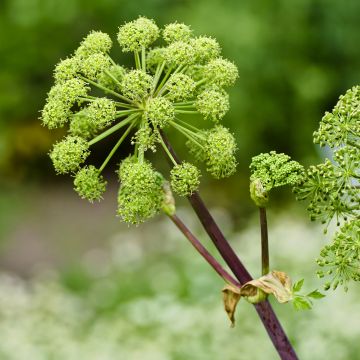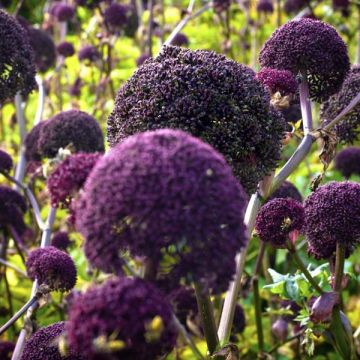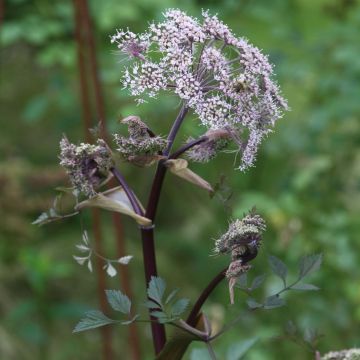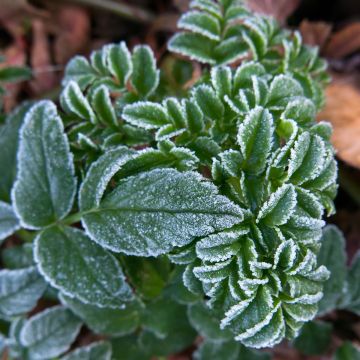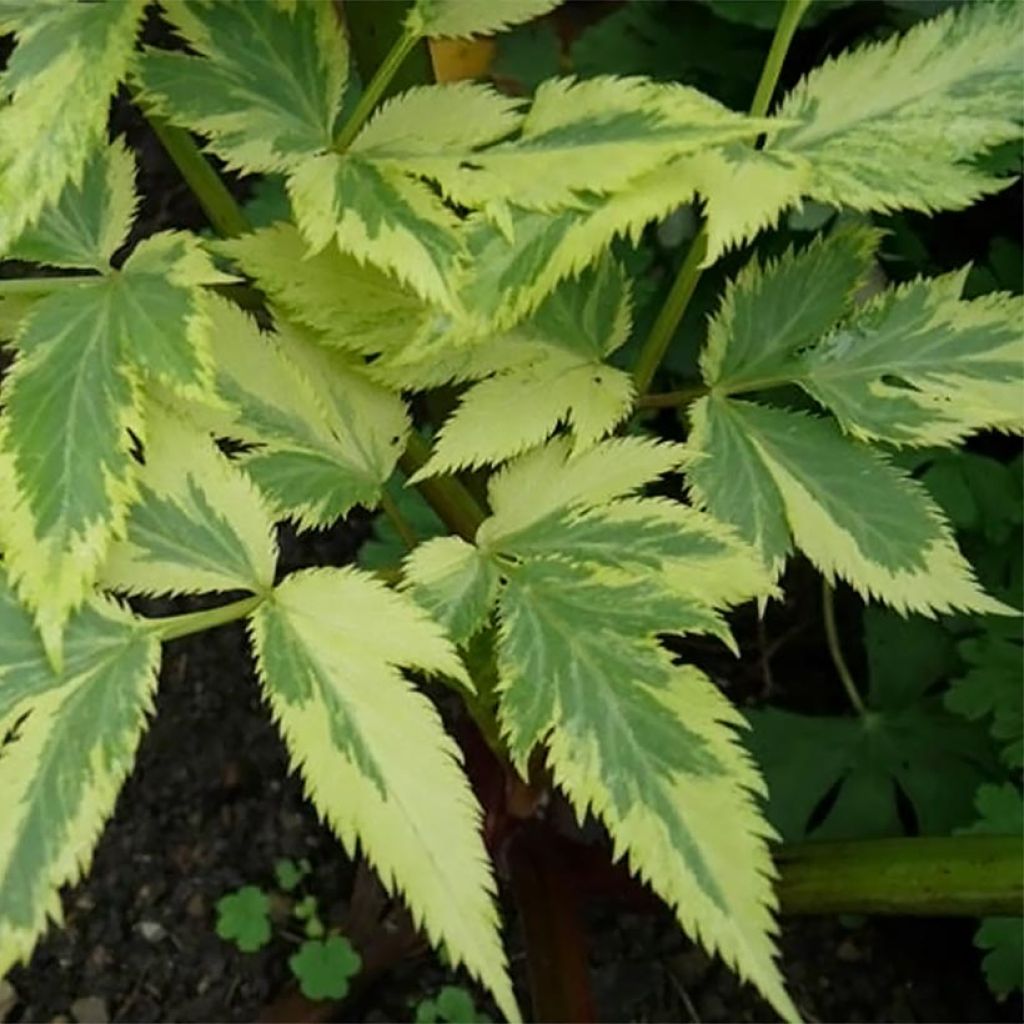

Angelica archangelica Corinne Tremaine - Garden Angelica
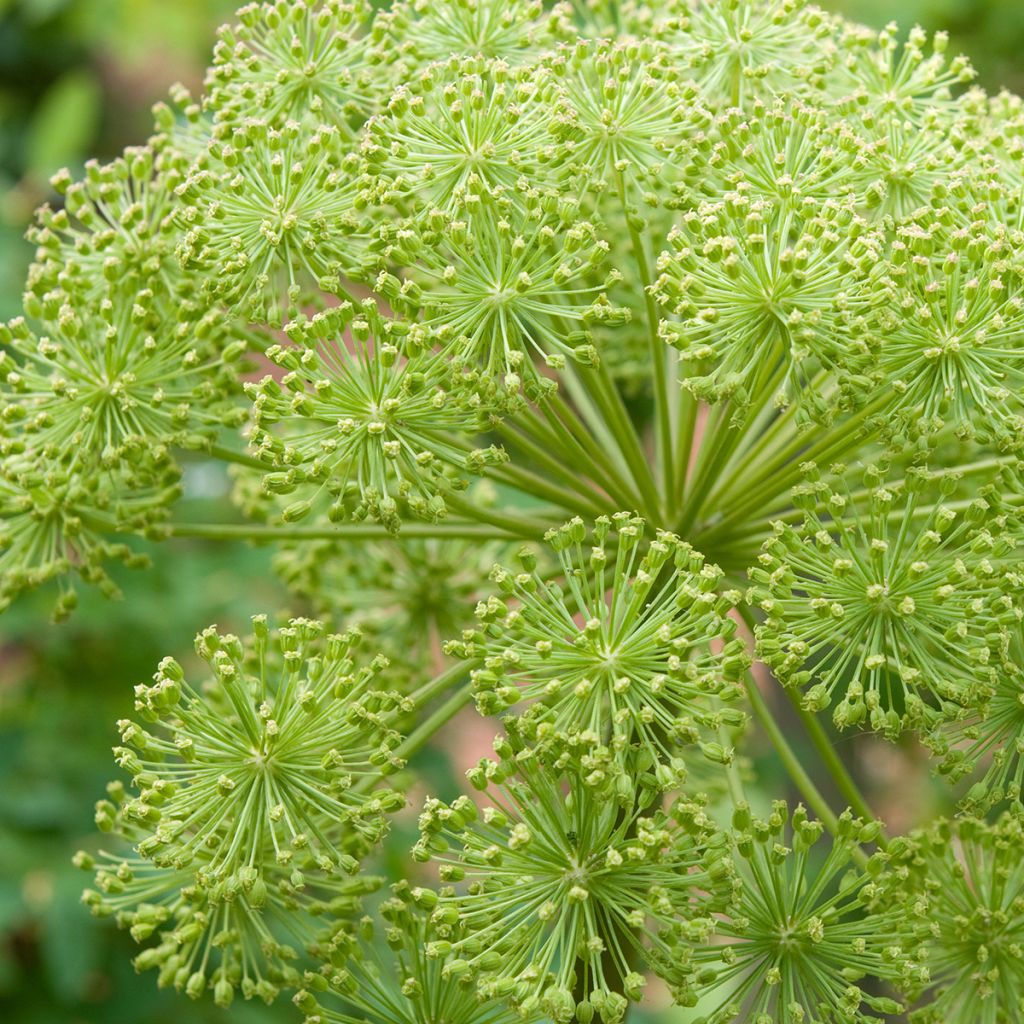

Angelica archangelica Corinne Tremaine - Garden Angelica
Angelica archangelica Corinne Tremaine - Garden Angelica
Angelica archangelica Corinne Tremaine
Garden Angelica, Wild Celery, Norwegian Angelica
Special offer!
Receive a €20 voucher for any order over €90 (excluding delivery costs, credit notes, and plastic-free options)!
1- Add your favorite plants to your cart.
2- Once you have reached €90, confirm your order (you can even choose the delivery date!).
3- As soon as your order is shipped, you will receive an email containing your voucher code, valid for 3 months (90 days).
Your voucher is unique and can only be used once, for any order with a minimum value of €20, excluding delivery costs.
Can be combined with other current offers, non-divisible and non-refundable.
Why not try an alternative variety in stock?
View all →This plant carries a 12 months recovery warranty
More information
We guarantee the quality of our plants for a full growing cycle, and will replace at our expense any plant that fails to recover under normal climatic and planting conditions.
Would this plant suit my garden?
Set up your Plantfit profile →
Description
Angelica archangelica Corinne Tremaine is a very beautiful variegated form of Angelica officinalis, rarely offered in catalogues. It is a highly ornamental plant with abundantly pinnate, finely toothed foliage, randomly splashed and speckled with cream. It develops into a large clump from which bright, pale greenish-white umbels emerge in summer. More biennial than perennial, this beautiful variety reproduces faithfully through sowing.
Angelica officinalis belongs to the family Apiaceae, formerly known as Umbelliferae. It is a cold-climate species widespread in Northern Europe, Eastern Europe, and Central Europe. It has been cultivated for a long time in the rest of Europe and has naturalised on riverbanks, in wet areas and along ditches. It is traditionally planted in vegetable gardens as a culinary plant for its aromatic stems. Angelica officinalis is highly valued by pastry chefs who use it candied in sugar to flavour biscuits, desserts, and cakes. Angelica Corinne Tremaine is a stunning variegated form that was discovered in Wales by Corinne Tremaine.
In addition to its culinary virtues, Angelica Corinne Tremaine is beautiful at the back of flowerbeds. It towers from 1.50m (5ft) to over 2m (7ft) with each sturdy, channelled stem bearing large globular, green inflorescences, turning white and 15cm (6in) in diameter. It normally flowers in July-August. It is loved by insects and produces a large quantity of seeds that ensure the plant's longevity, provided that the faded stems are not removed too early. Its very ornamental leaves are carried by long petioles and divided into numerous segments, toothed along the edges with a hairy underside. The vegetation of angelica partially persists in winter.
Angelica Corinne Tremaine thrives in rich, deep, wet to moist soils and can grow in full sun or partial shade. It will need these conditions in the garden in order to fully enjoy its beauty. Combine it with box balls for architectural structure or white and fragrant blooms like Hesperis matronalis 'Alba' or Philadelphus coronarius. Also, consider the green blooms of Alchemilla mollis and the peculiar Rosa chinensis Viridiflora. Queen of the meadows, bearded irises, and bugbanes also create compositions scenes with angelicas in moist, partial shade.
Report an error about the product description
Flowering
Foliage
Plant habit
Safety measures
Botanical data
Angelica
archangelica
Corinne Tremaine
Apiaceae
Garden Angelica, Wild Celery, Norwegian Angelica
Cultivar or hybrid
Phytophotodermatoses
Cette plante peut provoquer l'apparition de réactions cutanées indésirables en cas de contact suivi d'une exposition au soleil.
Ne la plantez pas là où de jeunes enfants peuvent évoluer. Evitez l'exposition au soleil après l'avoir manipulée. Evitez tout contact avec la peau: privilégiez l'emploi de gants pour la manipuler. En cas de contact, lavez-vous soigneusement les mains et rincez abondamment à l'eau la zone concernée. Lavez les vêtements entrés en contact. En cas de réaction cutanée, contactez votre médecin ou le centre antipoison le plus proche de chez vous. En cas d'atteinte étendue, appelez sans tarder le 15 ou le 112.Pensez à conserver l'étiquette de la plante, à la photographier ou à noter son nom, afin de faciliter le travail des professionnels de santé.
Davantage d'informations sur https://plantes-risque.info
Other Angelica
View all →Planting and care
Angelica archangelica Corinne Tremaine can be planted in partial shade or non-scorching sunlight, in rich and moist, preferably non-chalky, soil. This plant tolerates well-dug clay soils very well if they are not too compact. Its cold resistance is excellent. Cut the flower stalks in autumn once the seeds have fallen to the ground. Protect the young plants from slugs and snails.
Planting period
Intended location
Care
This item has not been reviewed yet - be the first to leave a review about it.
Haven't found what you were looking for?
Hardiness is the lowest winter temperature a plant can endure without suffering serious damage or even dying. However, hardiness is affected by location (a sheltered area, such as a patio), protection (winter cover) and soil type (hardiness is improved by well-drained soil).

Photo Sharing Terms & Conditions
In order to encourage gardeners to interact and share their experiences, Promesse de fleurs offers various media enabling content to be uploaded onto its Site - in particular via the ‘Photo sharing’ module.
The User agrees to refrain from:
- Posting any content that is illegal, prejudicial, insulting, racist, inciteful to hatred, revisionist, contrary to public decency, that infringes on privacy or on the privacy rights of third parties, in particular the publicity rights of persons and goods, intellectual property rights, or the right to privacy.
- Submitting content on behalf of a third party;
- Impersonate the identity of a third party and/or publish any personal information about a third party;
In general, the User undertakes to refrain from any unethical behaviour.
All Content (in particular text, comments, files, images, photos, videos, creative works, etc.), which may be subject to property or intellectual property rights, image or other private rights, shall remain the property of the User, subject to the limited rights granted by the terms of the licence granted by Promesse de fleurs as stated below. Users are at liberty to publish or not to publish such Content on the Site, notably via the ‘Photo Sharing’ facility, and accept that this Content shall be made public and freely accessible, notably on the Internet.
Users further acknowledge, undertake to have ,and guarantee that they hold all necessary rights and permissions to publish such material on the Site, in particular with regard to the legislation in force pertaining to any privacy, property, intellectual property, image, or contractual rights, or rights of any other nature. By publishing such Content on the Site, Users acknowledge accepting full liability as publishers of the Content within the meaning of the law, and grant Promesse de fleurs, free of charge, an inclusive, worldwide licence for the said Content for the entire duration of its publication, including all reproduction, representation, up/downloading, displaying, performing, transmission, and storage rights.
Users also grant permission for their name to be linked to the Content and accept that this link may not always be made available.
By engaging in posting material, Users consent to their Content becoming automatically accessible on the Internet, in particular on other sites and/or blogs and/or web pages of the Promesse de fleurs site, including in particular social pages and the Promesse de fleurs catalogue.
Users may secure the removal of entrusted content free of charge by issuing a simple request via our contact form.
The flowering period indicated on our website applies to countries and regions located in USDA zone 8 (France, the United Kingdom, Ireland, the Netherlands, etc.)
It will vary according to where you live:
- In zones 9 to 10 (Italy, Spain, Greece, etc.), flowering will occur about 2 to 4 weeks earlier.
- In zones 6 to 7 (Germany, Poland, Slovenia, and lower mountainous regions), flowering will be delayed by 2 to 3 weeks.
- In zone 5 (Central Europe, Scandinavia), blooming will be delayed by 3 to 5 weeks.
In temperate climates, pruning of spring-flowering shrubs (forsythia, spireas, etc.) should be done just after flowering.
Pruning of summer-flowering shrubs (Indian Lilac, Perovskia, etc.) can be done in winter or spring.
In cold regions as well as with frost-sensitive plants, avoid pruning too early when severe frosts may still occur.
The planting period indicated on our website applies to countries and regions located in USDA zone 8 (France, United Kingdom, Ireland, Netherlands).
It will vary according to where you live:
- In Mediterranean zones (Marseille, Madrid, Milan, etc.), autumn and winter are the best planting periods.
- In continental zones (Strasbourg, Munich, Vienna, etc.), delay planting by 2 to 3 weeks in spring and bring it forward by 2 to 4 weeks in autumn.
- In mountainous regions (the Alps, Pyrenees, Carpathians, etc.), it is best to plant in late spring (May-June) or late summer (August-September).
The harvesting period indicated on our website applies to countries and regions in USDA zone 8 (France, England, Ireland, the Netherlands).
In colder areas (Scandinavia, Poland, Austria...) fruit and vegetable harvests are likely to be delayed by 3-4 weeks.
In warmer areas (Italy, Spain, Greece, etc.), harvesting will probably take place earlier, depending on weather conditions.
The sowing periods indicated on our website apply to countries and regions within USDA Zone 8 (France, UK, Ireland, Netherlands).
In colder areas (Scandinavia, Poland, Austria...), delay any outdoor sowing by 3-4 weeks, or sow under glass.
In warmer climes (Italy, Spain, Greece, etc.), bring outdoor sowing forward by a few weeks.






























